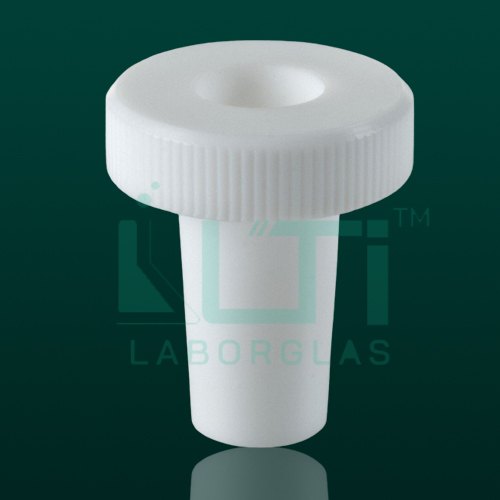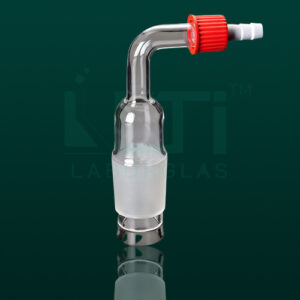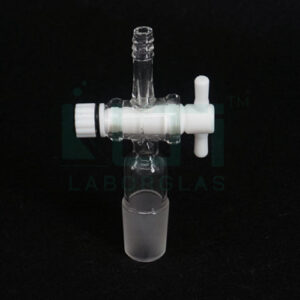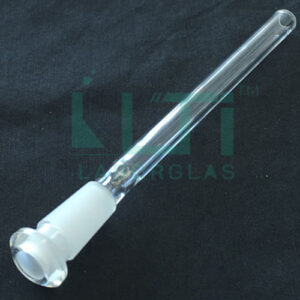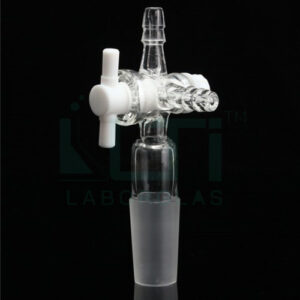ASTM,ADAPTER, REDUCING, BUSHING STYLE, PTFE
| Part No. | Female Joint | Male Joint | Pack QTY. |
| 1910-19F24M | 19/38 | 24/40 | 10 |
| 1910-24F29M | 24/40 | 29/42 | 10 |
| 1910-29F34M | 29/42 | 34/45 | 10 |
An ASTM (American Society for Testing and Materials) adapter with a reducing, bushing-style design made from PTFE (polytetrafluoroethylene) material can have various uses in a laboratory setting. PTFE is known for its chemical resistance, thermal stability, and low friction properties. Here are some potential uses for an ASTM adapter with a reducing, bushing-style design made from PTFE in a lab:
- Chemical Resistant Connections: PTFE adapters are resistant to a wide range of chemicals, making them suitable for connecting different glassware components in setups involving corrosive or reactive substances.
- Reaction Setups: PTFE adapters can be used in experimental setups involving chemical reactions, where a reducing, bushing-style design allows for connections between glassware components with different joint sizes.
- Distillation Apparatus: In distillation processes, these adapters can be utilized to connect various components of the distillation apparatus, allowing for the separation of liquids based on their boiling points.
- Fractional Distillation: PTFE reducing bushing adapters are suitable for fractional distillation setups, where precise control over temperature and vapor flow is essential for separating components with similar boiling points.
- Vacuum Systems: PTFE adapters are often used in vacuum systems due to their chemical resistance. They can be employed to connect different vacuum components, such as traps or manifolds, in a laboratory setup.
- Gas Handling: PTFE adapters are inert and can be used for handling gases in laboratory applications where non-reactive and chemically resistant connections are required.
- High-Temperature Reactions: PTFE is known for its high-temperature stability. Adapters made from PTFE can be used in setups involving high-temperature reactions without the risk of degradation.
- Biotechnology and Life Sciences: PTFE adapters are suitable for applications in biotechnology labs where chemical compatibility and inertness are important, such as in the preparation of culture media.
- Analytical Instrumentation: These adapters can be used in conjunction with analytical instruments, such as chromatography systems, where chemical resistance is necessary for maintaining the integrity of the samples.
- Microscale Chemistry: In microscale experiments, where small quantities of reagents are used, PTFE adapters with a reducing, bushing-style design can facilitate connections in a chemically inert and non-contaminating manner.

